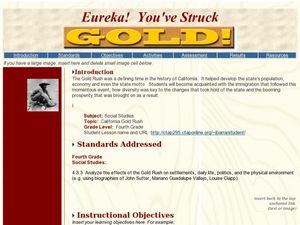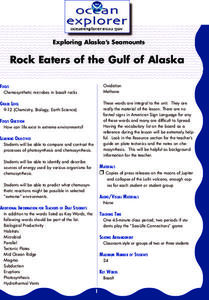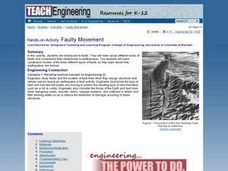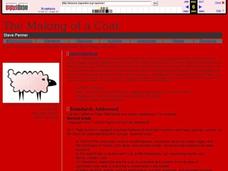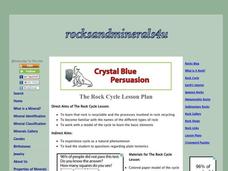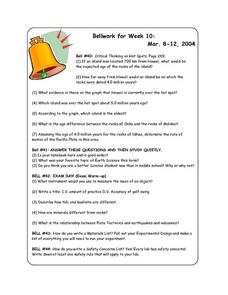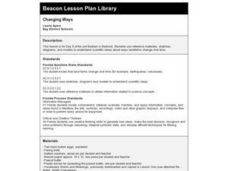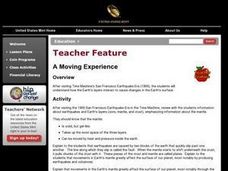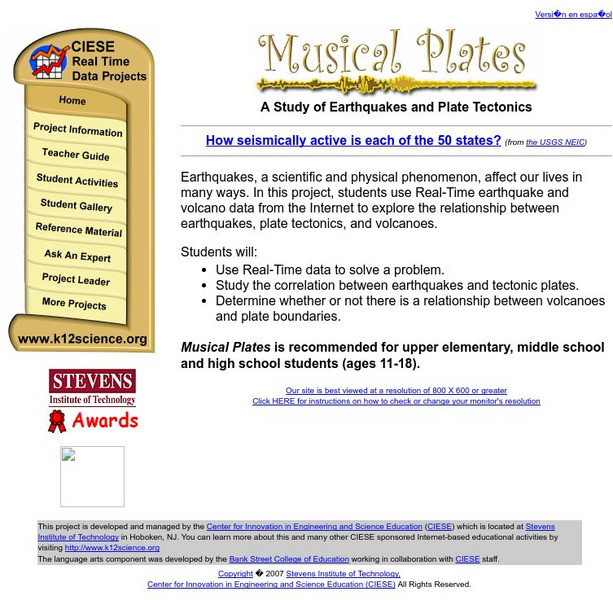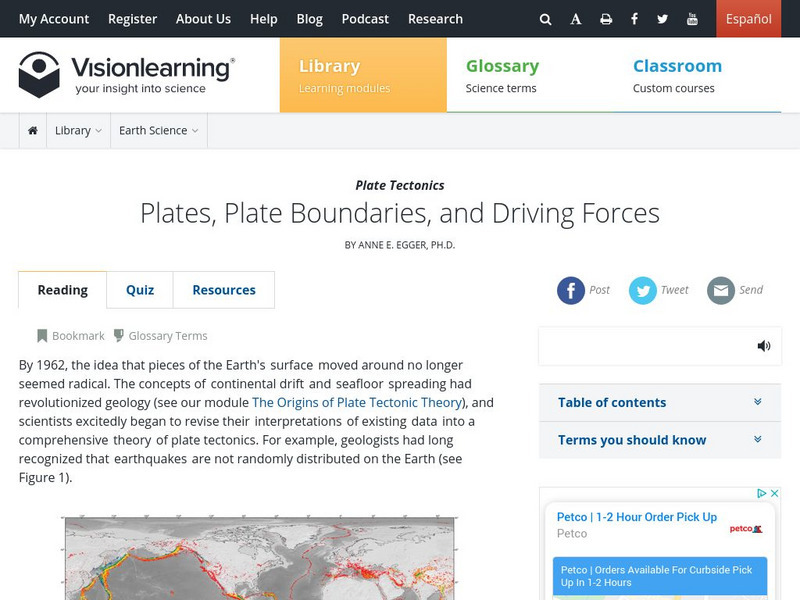Curated OER
Eureka! You've Struck
While incomplete, this lesson could provide ideas for a lesson on the California gold rush. Learners look at a chart to analyze population growth in San Francisco after the discovery of gold, analyze political changes that occurred, and...
Curated OER
Rock Eaters of the Gulf of Alaska
Students compare and contrast the processes of photosynthesis and chemosynthesis. They identify and describe sources of energy used by various organisms for chemosynthesis.
Curated OER
What's In A Name
Second graders read Chrysanthemum by Kevin Henkes. They then discuss where various names come from. They create a individualized biopoem and publish it on word processing software. Their poems are compiled into a class book and presented...
Curated OER
Give me Food!
Young scholars study the food guide pyramid and use it to create their own eating program.In this health lesson students visit websites to calculate their BMR, activity level and weight then create a nutrition plan
Curated OER
The Physical Geography of Australia, Oceania, and Antarctica
Students access information from the United States Geological Survey's Web site This Dynamic Earth to research the Ring of Fire. They answer four questions and then apply what they have learned to create a bulletin board display.
Curated OER
Faulty Movement
Students discover the faults throughout the Earth. They describe the different types of faults and how they are related to earthquakes. They build models of the faults.
Curated OER
Health: The Three Dimensions
Students examine the three dimensions of health, wealth, and happiness from both emotional and social perspectives. Among the week-long activities are discussions about good and poor habits, minimizing risks by proper planning and...
Curated OER
The Making of a Coat
Students read the story A New Coat For Anna and discuss their knowledge on how to make a coat. In this reading and coat making lesson plan, students discuss coat making and listen to a speaker that spins thread to make coats.
Curated OER
The Rock Cycle
Learners study the rock cycle of different types of rock. They arrange cut-outs of the parts of the rock cycle in the correct order and then draw the rock cycle or research different types of rocks.
Curated OER
Amazing Planet DVD-Video Assignment
In this geography skills learning exercise, students watch the National Geographic video "Amazing Planet." Students then respond to 13 short answer questions about the content of the video.
Curated OER
Bellwork for Week 10
In this bellwork worksheet, students answer questions about the Hawaiian islands formation, about science class in general, about rocks and minerals and about experimental design.
Curated OER
Geology Word List
In this science worksheet, students review the vocabulary words for the separate categories related to the concept of geology.
Curated OER
Geological Forces and Topography
Students discuss and research the Earth's geological processes. In this geology lesson plan, students study maps of Utah and the United States to learn about geological features. Students then complete the research cards for each area of...
Curated OER
Science Test-Grade 5
In this grade 5 science test worksheet, 5th graders complete a 30 question multiple choice quiz covering a variety of grade 5 concepts.
Curated OER
Shake, Rattle and Erupt
Students study myths regarding four earthquakes myths. They receive a list of supplies each family should have at home to prepare for an earthquake and construct an "Earthquake Preparation" poster showing some of the most important items...
Curated OER
Changing Ways
Third graders examine hard boiled eggs as possible models for the earth's layers.
Curated OER
A Moving Experience
Students visit Time Machine's San Francisco Earthquake Era. They understand how the Earth's layers interact to cause changes in the Earth's surface. They review information about earthquakes and Earth's layers.
Curated OER
Natural Hazards
Students evaluate the hazards of naturally occurring events. After watching a video concerning safety hazards, students work in groups to discuss the safety issues involved in taking a trip to a mountainous region. Recommendations are...
PBS
Pbs Learning Media: Tectonic Plates, Earthquakes, and Volcanoes
This interactive activity produced for Teachers' Domain shows the relationship between tectonic boundaries and the locations of earthquake events and volcanoes around the world.
E-learning for Kids
E Learning for Kids: Madagascar: What Are Tectonic Plates and How Are They Moving?
This lesson teaches students about tectonic plates, plate boundaries, and their role in earthquakes and volcanoes.
Center for Innovation in Engineering and Science Education, Stevens Institute of Technology
Ciese: Musical Plates: A Study of Earthquakes and Plate Tectonics
This activity has students access USGS earthquake information to plot the their locations on a world map. Doing this will help students discover for themselves the boundaries of tectonic plates.
Incorporated Research Institutions for Seismology
Iris: Gps Measuring Plate Motion [Pdf]
This resource looks at how geologists are able to measure the movement of tectonic plates using satellite-based data and how they were able to surmise in the past that the plates were moving. It also discusses how to read GPS time-series...
Vision Learning
Visionlearning: Earth Science: Plate Tectonics Ii: Plate Boundaries and Forces
Instructional module focusing on plate tectonics. Discussion includes plates, plate boundaries, and driving forces. Site also includes an interactive practice quiz and links relating to the topic.
Concord Consortium
Concord Consortium: Exploring Earth's Seismicity
This sequence is an introduction to plate tectonics using evidence from topographical maps, earthquake location and depth, and volcano location using the Seismic Explorer model to investigate patterns of earthquake data and to infer the...


